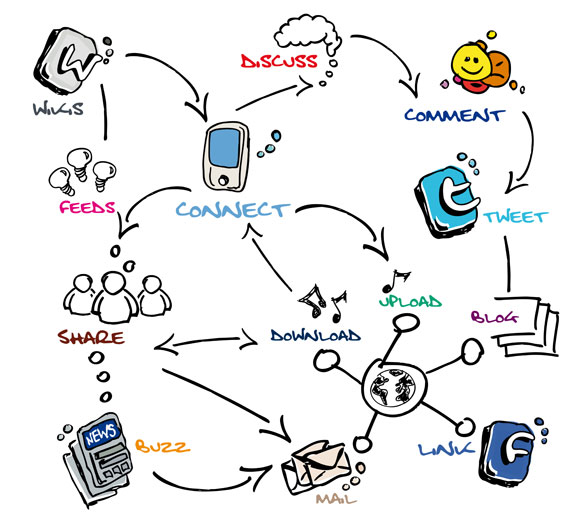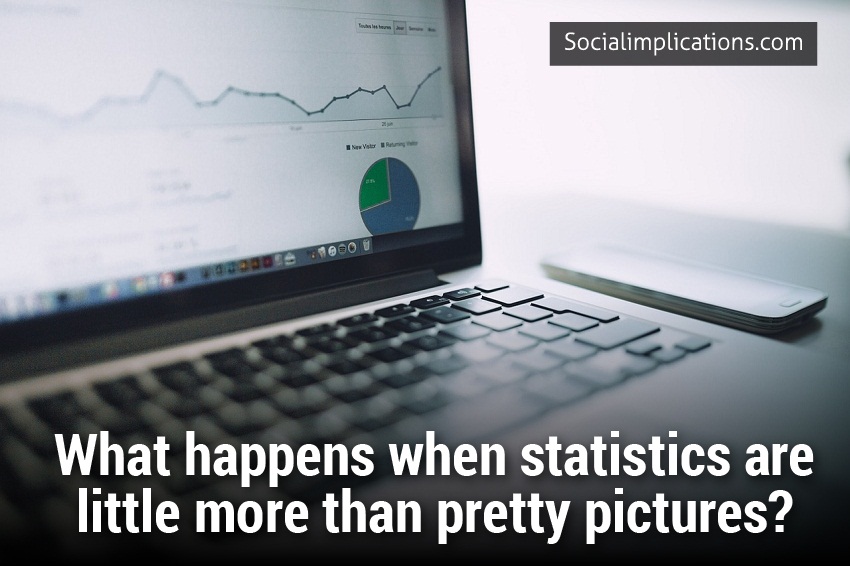There’s a new (well, sort of new) buzzword making the rounds these days. “Content marketing.” Whether you’ve been doing it for years (under its other names) or are just now jumping onto the quality content bandwagon, content marketing is a concept you’re bound to come across in social media.
Let’s take a look at content marketing today — what it is, what’s great about it, and what’s not so great about yet another social media buzzword like this.
What is Content Marketing?
Content marketing is a bit of a catch-all term. It includes just about any kind of content creation you can imagine — blog posts, press releases, videos, podcasts, infographics, photos, feature articles, newsletters, and anything else you might share on the Web. The idea is that you create quality content for a targeted audience. The content should educate, entertain, inform, amuse, or encourage interaction (where the social media side comes in).
Basically you create content people are actually interested in. And in turn they’re more likely to share that content, link to it, refer more traffic your way, become a customer, become a regular visitor or reader, become an active member of your network or community, or form some other intended relationship with you or your business.

Why I Love the Term
On one hand I like the term “content marketing.” The hype surrounding the phrase seems to have more site owners than ever focusing on high quality content creation (or curation). It’s taking the focus back from gaming the system, which was never a respectable and sustainable way to market a business on the Web. But gaming the system was often easier in the immediate sense (and we still see it with some automation tools). With search engines’ attempts to weed out these results more now, people are finally waking up to the old “content is king” saying and realizing it’s quality content that matters. This is something I love to see.
Why I Dislike the Term
On the other hand, the catch-all nature of “content marketing” is my biggest problem with the term. It tries to encompass too much at times. Coming from a PR background, I sometimes find it a bit annoying that tried and true PR tactics are being spun as marketing gimmicks now more than ever. And sometimes I feel like there’s too much emphasis on the social media side of content marketing (with highly effective tools like email marketing — equally content-based — almost ignored). I also worry that the over-generalization can be confusing for newer site owners or social media users who might be better off with different types of content targeting.
Despite the fact that I’m not crazy about the term in general, I do still use it. I suppose I prefer to look at the bright side. For every business owner that embraces content marketing through quality contributions, that’s one less unintentional search engine or social media spammer to worry about on the Web.
What are your thoughts on “content marketing?” Do you embrace the term? Do you prefer to focus on more specific types of content given that nothing encompassed is actually new? Or do you just ignore it alongside other buzzwords in the social media space, focusing more on the day-to-day? Share your thoughts or favorite content marketing tactics in the comments below.














Personally I have no problem with the term. I don’t mind it being an umbrella term or what you call a catch-all term. I just want to share that (though we all know about this) it is important to have an up-to-date information with your blog/site. It increases website traffic, produces leads, helps SEO by giving fresh content to the search engines, and establishes thought leadership and buzz around your brand.
Continually posting updated information can definitely be a good strategy. I’d say it’s equally important not to neglect static content though. Static sites can see the same benefits with the right kind of content even if they don’t constantly post new updates. That’s a situation where larger resources can play a significant role — white papers, e-books, industry surveys and reports, etc. Basically, it still comes down to the old linkbait idea. Give people something they actually want and they’ll naturally link to it, visit your site, and spread the word.
A growing content base, like that provided by a blog, is definitely great for SEO. But there’s never just one way to rank well. That’s why solid all-around strategies are so important.
hahaha there are so many dirty word in social media 🙂 . I would say I agree with you. I hope we will understand how to really use tools like editorial calendar
Passion makes the difference
I think my biggest concern with the “content marketing” craze is that it puts the focus on making content more manipulative with a marketing angle. That’s fine to some degree. But I don’t want to see us lose higher quality material, personal stories, and other more “natural” content that doesn’t always stem from pre-planned marketing motives. And you’re right about passion. I don’t care how well written something is, how catchy a title is, or how much content promises. If the author has no passion for the topic, I’ll probably leave bored and uninterested in coming back.